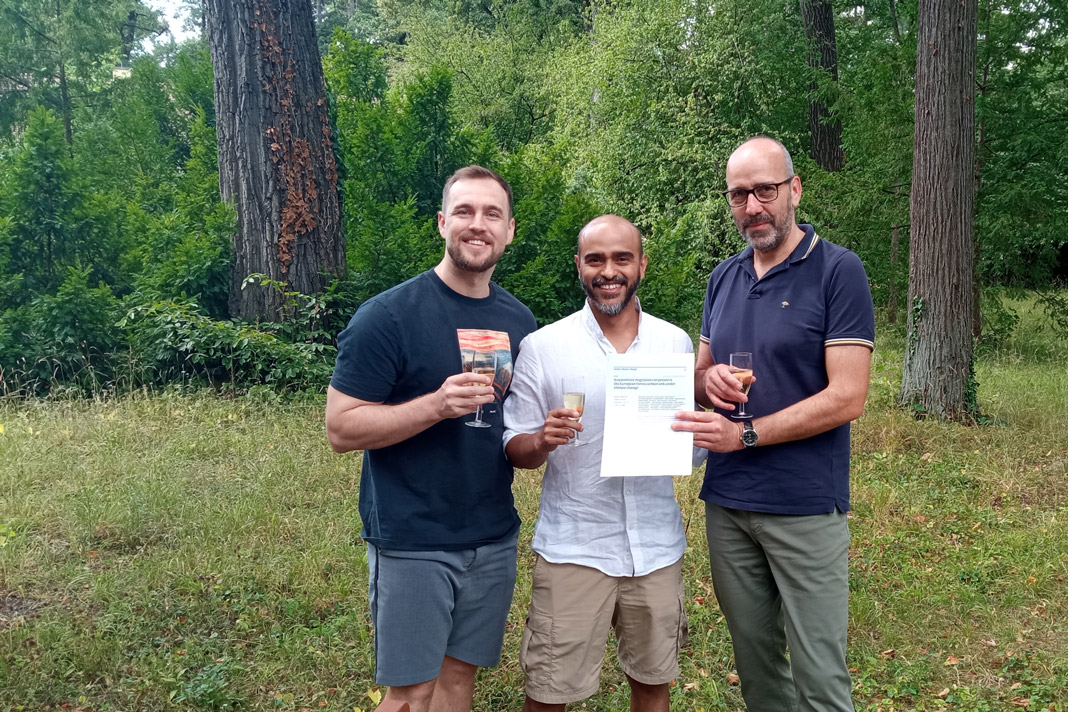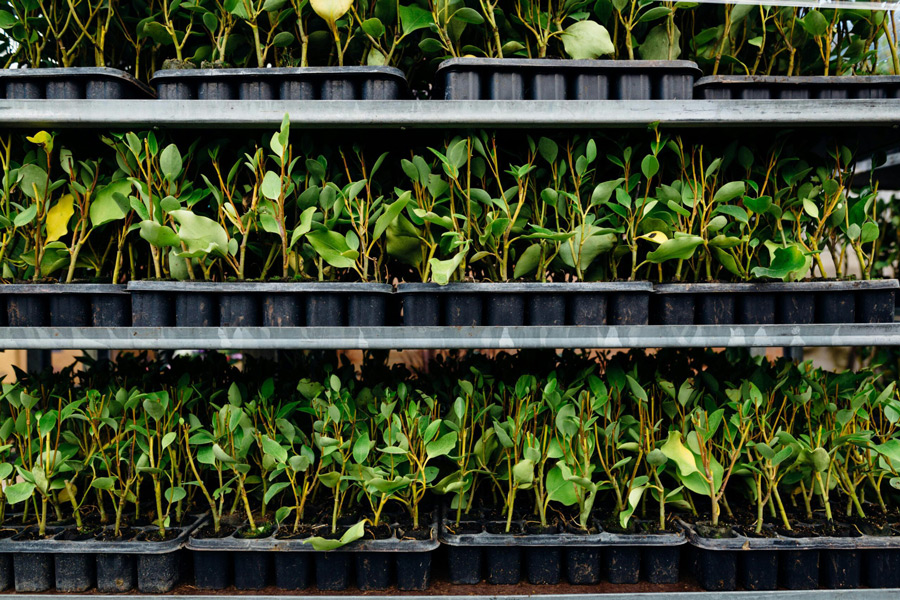Sixth Steering Committee Meeting
National Coordinators and observers from 27 countries participated in the sixth Steering Committee meeting of EUFORGEN, held in Thessaloniki, Greece on 9-12 June 2009. Representatives of Bioversity International and the United Nations Food and Agriculture Organization (FAO) also attended the meeting, hosted by the Greek Ministry of Rural Development and Food and the Aristotle University of Thessaloniki.
National Coordinators and observers from 27 countries participated in the sixth Steering Committee meeting of EUFORGEN, held in Thessaloniki, Greece on 9-12 June 2009. Representatives of Bioversity International and the United Nations Food and Agriculture Organization (FAO) also attended the meeting, hosted by the Greek Ministry of Rural Development and Food and the Aristotle University of Thessaloniki.
The meeting started by discussing conservation and use of forest genetic resources in Europe in the context of the MCPFE process. In 2007, ministers responsible for forests signed the Warsaw Declaration and, among other issues, reinforced their commitment to conserve and enhance forest genetic resources as part of sustainable forest management. Furthermore, the ministers called for continued implementation of the previous MCPFE commitments.
In 2008, the MCPFE process included both EUFORGEN and the EUFGIS project into its new Work Programme to implement the commitments of the Warsaw Conference. The Steering Committee acknowledged the renewed policy support and agreed that EUFORGEN will continue as a pan-European implementation mechanism for the relevant MCPFE commitments on forest genetic resources after the current Phase (2005-2009).
The meeting continued by reviewing the progress made in the EUFORGEN activities. Since 2005, the Programme has been operating through one thematic and three species Networks. A total of 101 experts from 31 member countries are participating in these Networks. The Forest Management Network has been focusing on promoting practical implementation of gene conservation and appropriate use of genetic resources as part of sustainable forest management. The species networks have been developing technical guidelines for gene conservation of forest trees and related gene conservation strategies. All of the Networks have also contributed to the work of the EUFGIS project. The Steering Committee acknowledged the efforts made by the networks and encouraged them to finalize the ongoing activities by the end of 2009.
The FAO representative also briefed the Steering Committee on the development of the State of the World's Forest Genetic Resources (SoW-FGR) report. Regional networks and programmes on forest genetic resources, such as EUFORGEN, have an important role in the preparation of this report.
FAO invited the Steering Committee to comment on the draft outline of the report, which will be finalized by October 2009. The Steering Committee welcomed the development of the report and recommended that the EUFORGEN Secretariat continue its collaboration with FAO in this regard.
The Steering Committee also agreed that EUFORGEN should finalize the planned report on European forest genetic resources independently from FAO's global report efforts. However, the content of the European report, to be finalized by 2012, should be aligned with the content of the global report to avoid duplication of efforts.
The main item in the agenda of the meeting was a proposal for EUFORGEN Phase IV (2010-2014). In March 2009, a survey was carried out among the member countries to collect feedback on the achievements and the future role of EUFORGEN. The survey also identified needs for further action on forest genetic resources at pan-European level. Based on the results of the survey, a working group of National Coordinators from Croatia, Denmark, Germany, Spain, Turkey and the United Kingdom developed the proposal for further discussion by the Steering Committee.
The meeting endorsed the proposal and agreed that climate change and its implications for forest management (in particular to the use of forest reproductive material) and conservation of forest genetic resources are the main issues that should be addressed during Phase IV. Furthermore, the Steering Committee noted that integration of forest genetic resources into national forest programmes, national biodiversity action plans and national adaptation strategies to climate change still need to be improved in many countries.
The Steering Committee also agreed a major change in the Programme's mode of operation. EUFORGEN will operate through smaller working groups focusing on specific tasks during Phase IV. Each working group will consist of approximately 10 experts and the outputs of the working groups will be presented to the Steering Committee for further action. In addition, the outputs will also be discussed during workshops through which a broader group of stakeholders will be engaged in the EUFORGEN activities.
The Steering Committee further decided that the EUFGIS information system will be maintained and further developed as part of EUFORGEN after the EUFGIS project has ended in September 2010. The EUFGIS National Focal Points will also continue their work providing national data and keeping the information system updated. This work is crucial for developing the pan-European gene conservation strategies for forest trees and providing inputs to the State of the World's Forest Genetic Resources report.
The Steering Committee will meet again in early 2010 to further review the budget for Phase IV, develop an overall workplan for various activities and establish the first working groups.
Related Links
- Report of the Sixth Steering Committee meeting, presenting the Phase IV







